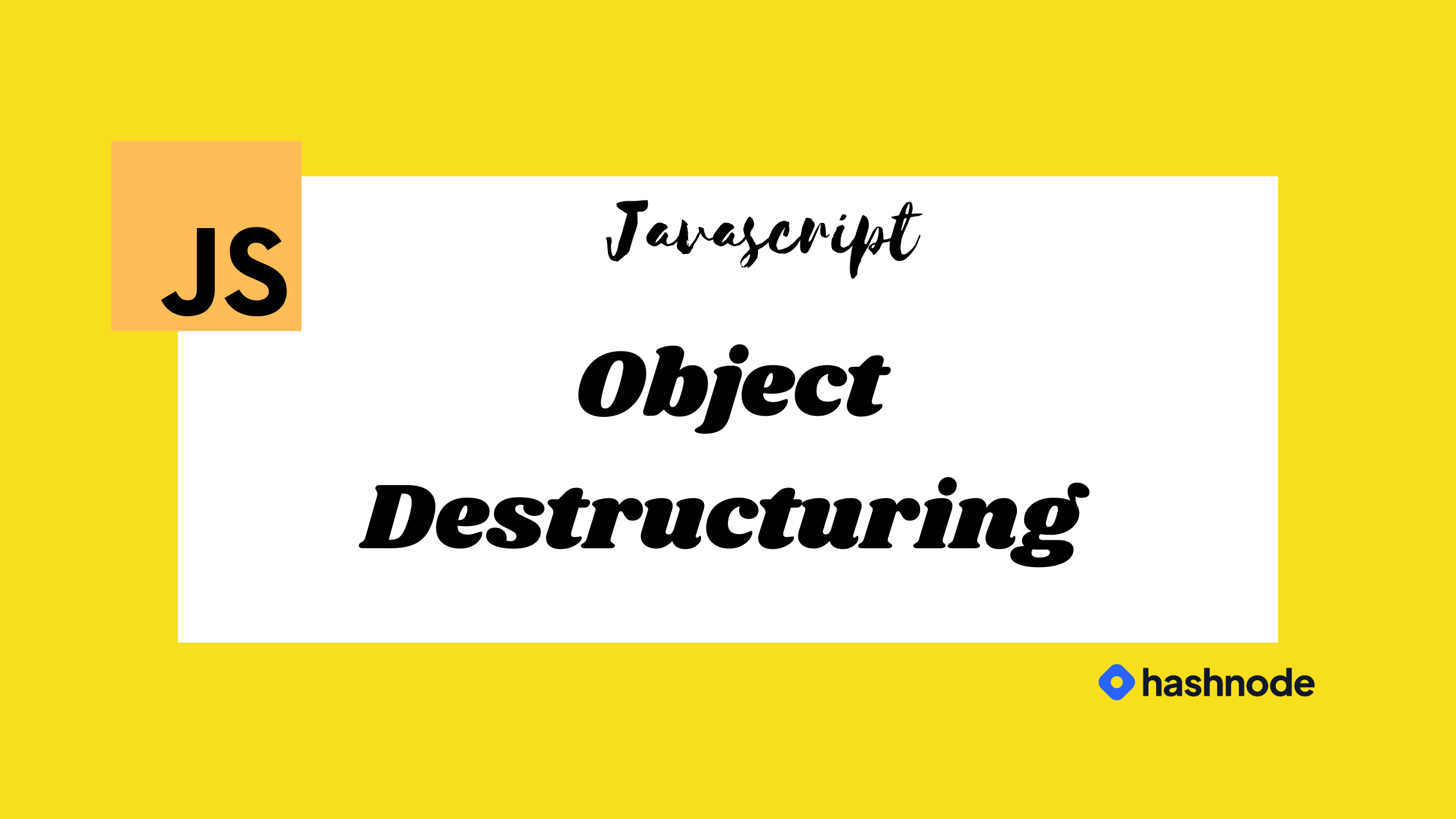JavaScript Object Destructuring: Unraveling the Beauty of Simplicity - const { 🎉, 🎈 } = 🎁;
 Rakesh Gupta
Rakesh GuptaTable of contents

Welcome, fellow developers, to another exciting blog post on JavaScript! Today, we'll explore one of the language's most elegant features: Object Destructuring. It's a powerful technique that simplifies your code, making it more readable and maintainable.
What is Object Destructuring and Why is it Useful?
Object destructuring is a way to extract properties from an object and assign them to individual variables in a concise manner. It allows you to unpack values from objects and utilize them directly without having to access properties through dot notation or square brackets.
Why is it useful? Imagine you have a large configuration object with numerous properties, and you need only a few of those properties in your code. Object destructuring allows you to cherry-pick the properties you need, making your code more efficient and easier to understand.
How to Use Object Destructuring Syntax with Different Examples
Basic Object Destructuring:
Let's start with a simple example of object destructuring:
const user = {
name: 'Ram',
age: 20,
country: 'India',
};
// Destructuring the 'user' object
const { name, age, country } = user;
console.log(`Name: ${name}`);
console.log(`Age: ${age}`);
console.log(`Country: ${country}`);
const { 🌟, 🌙, 🌞 } = 🌈;
In the code snippet const { 🌟, 🌙, 🌞 } = 🌈;, we are using object destructuring to extract specific properties from the object represented by 🌈 (which is just an emoji placeholder). The variables inside the curly braces { 🌟, 🌙, 🌞 } are called destructured variables or destructured properties.
Nested Object Destructuring:
You can also destructure nested objects:
const user = {
name: 'John',
age: 24,
address: {
city: 'New York',
country: 'USA',
},
};
// Destructuring the 'user' object with nested 'address'
const {
name,
age,
address: { city, country },
} = user;
console.log(`Name: ${name}`);
console.log(`Age: ${age}`);
console.log(`City: ${city}, Country: ${country}`)
Setting Default Values and Renaming Variables
Default Values:
You can set default values for properties that might not exist in the object:
const user = {
name: 'Jane',
age: 28,
};
// Destructuring the 'user' object with default values
const { name, age, country = 'Unknown' } = user;
console.log(`Name: ${name}`);
console.log(`Age: ${age}`);
console.log(`Country: ${country}`);
Renaming Variables:
You can also assign the extracted properties to variables with different names:
const user = {
fullName: 'Max Payne',
yearsOld: 35,
};
// Destructuring the 'user' object with variable renaming
const { fullName: name, yearsOld: age } = user;
console.log(`Name: ${name}`);
console.log(`Age: ${age}`);
Rest Parameter and Spread Syntax with Object Destructuring
Rest Parameter:
The rest parameter allows you to collect the remaining properties into a new object:
const book = {
title: 'JavaScript 101',
author: 'John Doe',
pages: 300,
genre: 'Programming',
};
// Destructuring some properties and collecting the rest in 'otherDetails'
const { title, author, ...otherDetails } = book;
console.log(`Title: ${title}`);
console.log(`Author: ${author}`);
console.log('Other Details:', otherDetails);
Spread Syntax:
The spread syntax lets you merge objects easily:
const personalInfo = {
fullName: 'Jane Doe',
age: 25,
};
const contactInfo = {
email: 'jane@example.com',
phone: '123-456-7890',
};
// Using spread syntax to merge two objects
const mergedInfo = { ...personalInfo, ...contactInfo };
console.log('Merged Info:', mergedInfo);
Conclusion😁:
Object destructuring is a powerful feature that simplifies your code, enhances readability, and reduces duplication. It allows you to extract only the necessary data from objects and work with them directly, saving you time and effort.
So, the next time you find yourself dealing with objects in JavaScript, remember the hiking analogy, and let object destructuring work its magic! Keep exploring the code galaxy! 🚀
Subscribe to my newsletter
Read articles from Rakesh Gupta directly inside your inbox. Subscribe to the newsletter, and don't miss out.
Written by
